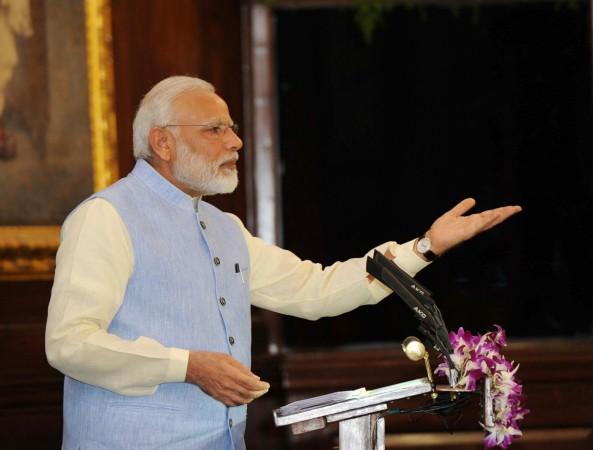Exporters in India have written a formal letter to the Narenadra Modi-led Central government asking for complete exemption on payment of Goods and Services Tax (GST) as the procedure to get reimbursement under the new tax system is time-consuming and is leading to a capital crunch.
About Rs 1.85 lakh crore of working capital will reportedly get stuck annually because of GST implementation. Many exporters are already facing capital shortage and have started to turn away orders, Economic Times reported.
This comes at a time when India is struggling to increase its export orders to narrow the trade deficit. Hence, if this continues and more orders are turned away in future, it will likely cause the trade deficit to only widen.
India's export grew by 3.94 percent on a yearly basis to $22.54 billion in July, narrowing the trade deficit to $11.45 billion. The growth was driven by a surge in shipments of petroleum, chemicals and marine products, according to official data released in August.
Exports before GST started were exempted from paying duties. Now exporters first have to pay the tax and only then can seek a refund. The process is slow and keeps a portion of their working capital on hold, which further pushes up manufacturing cost as they have to pay duties on inputs.
Small exporters have been especially hit by the new tax system as they have access to fewer resources and getting finances from banks is also not easy.
"Working capital needs have increased by 10 percent due to GST as there was no VAT or excise on our products, and also drawback, which is at present 7.5 percent, will reduce to half from next month," said Bhuvan Ahuja, CEO of Ahujasons, an exporter of shawls.
Prime Minister Narendra Modi had implemented the GST from July 1 in a bid to replace several cascading taxes with a single tax. Although the single tax system has caused confusion among people and mainly businesses, it is expected to add 1-2 percentage points to the current GDP.

The manufacturing and services activity, too, has dipped to the contraction zone after GST implementation. Many railway projects in India, worth Rs 1 lakh crore, lost momentum or stopped since July 1, as the contractors executing them were engaged in a dispute with the national transporter over the tax confusion.














